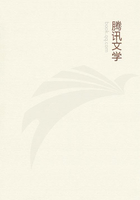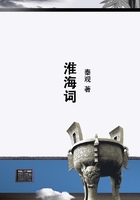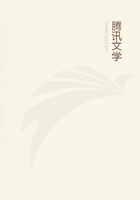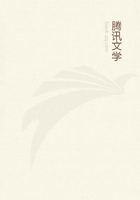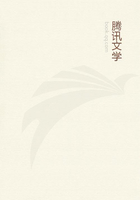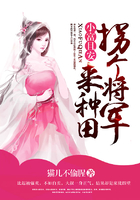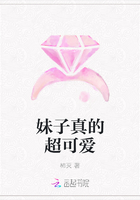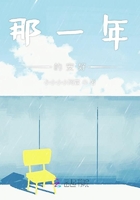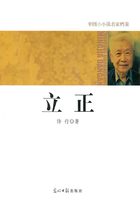However, to do away with this misconception, I need not here show the measure of truth in the proverb, "What comes quickly, goes quickly," nor discuss whether, from the point of view of universal nature, all things are equally easy, or otherwise: I need only remark that I am not here speaking of things, which come to pass through causes external to themselves, but only of substances which (by Prop. vi.) cannot be produced by any external cause. Things which are produced by external causes, whether they consist of many parts or few, owe whatsoever perfection or reality they possess solely to the efficacy of their external cause; wherefore the existence of substance must arise solely from its own nature, which is nothing else but its essence. Thus, the perfection of a thing does not annul its existence, but, on the contrary, asserts it. Imperfection, on the other hand, does annul it; therefore we cannot be more certain of the existence of anything, than of the existence of a being absolutely infinite or perfect--that is, of God. For inasmuch as his essence excludes all imperfection, and involves absolute perfection, all cause for doubt concerning his existence is done away, and the utmost certainty on the question is given.
This, I think, will be evident to every moderately attentive reader.
XII. No attribute of substance can be conceived from which it would follow that substance can be divided.
Proof--The parts into which substance as thus conceived would be divided either will retain the nature of substance, or they will not. If the former, then (by Prop. viii.) each part will necessarily be infinite, and (by Prop vi.) self-caused, and (by Prop. v.) will perforce consist of a different attribute, so that, in that case, several substances could be formed out of one substance, which (by Prop. vi.) is absurd. Moreover, the parts (by Prop. ii.) would have nothing in common with their whole, and the whole (by Def. iv. and Prop. X) could both exist and be conceived without its parts, which everyone will admit to be absurd. If we adopt the second alternative--namely, that the parts will not retain the nature of substance--then, if the whole substance were divided into equal parts, it would lose the nature of substance, and would cease to exist, which (by Prop. vii.) is absurd.
XIII. Substance absolutely infinite is indivisible.
Proof--If it could be divided, the parts into which it was divided would either retain the nature of absolutely infinite substance, or they would not. If the former, we should have several substances of the same nature, which (by Prop. v.) is absurd. If the latter, then (by Prop. vii.) substance absolutely infinite could cease to exist, which (by Prop. xi.) is also absurd.
Corollary--It follows that no substance, and consequently no extended substance, in so far as it is substance, is divisible.
*****Note--The indivisibility of substance may be more easily understood as follows. The nature of substance can only be conceived as infinite, and by a part of substance, nothing else can be understood than finite substance, which (by Prop. viii.) involves a manifest contradiction.
XIV. Besides God no substance can be granted or conceived.
Proof--As God is a being absolutely infinite, of whom no attribute that expresses the essence of substance can be denied (by Def. vi.), and he necessarily exists (by Prop. xi.); if any substance besides God were granted, it would have to be explained by some attribute of God, and thus two substances with the same attribute would exist, which (by Prop. v.) is absurd; therefore, besides God no substance can be granted, or consequently be conceived. If it could be conceived, it would necessarily have to be conceived as existent; but this (by the first part of this proof) is absurd. Therefore, besides God no substance can be granted or conceived. Q.E.D.
Corollary I.--Clearly, therefore: 1. God is one, that is (by Def. vi.) only one substance can be granted in the universe, and that substance is absolutely infinite, as we have already indicated (in the note to Prop. x.).
Corollary II.--It follows: 2. That extension and thought are either attributes of God or (by Ax. i.) accidents ("affectiones") of the attributes of God.
XV. Whatsoever is, is in God, and without God nothing can be, or be conceived.
Proof--Besides God, no substance is granted or can be conceived (by Prop. xiv.), that is (by Def. iii.) nothing which is in itself and is conceived through itself. But modes (by Def. v.) can neither be, nor be conceived without substance; wherefore they can only be in the divine nature, and can only through it be conceived. But substances and modes form the sum total of existence (by Ax. i.), therefore, without God nothing can be, or be conceived. Q.E.D.
*****Note--Some assert that God, like a man, consists of body and mind, and is susceptible of passions. How far such persons have strayed from the truth is sufficiently evident from what has been said. But these I pass over. For all who have in anywise reflected on the divine nature deny that God has a body. Of this they find excellent proof in the fact that we understand by body a definite quantity, so long, so broad, so deep, bounded by a certain shape, and it is the height of absurdity to predicate such a thing of God, a being absolutely infinite. But meanwhile by other reasons with which they try to prove their point, they show that they think corporeal or extended substance wholly apart from the divine nature, and say it was created by God. Wherefrom the divine nature can have been created, they are wholly ignorant; thus they clearly show that they do not know the meaning of their own words. I myself have proved sufficiently clearly, at any rate in my own judgment (Cor. Prop. vi., and Note 2, Prop. viii.), that no substance can be produced or created by anything other than itself. Further, I showed (in Prop. xiv.) that besides God no substance can be granted or conceived.

